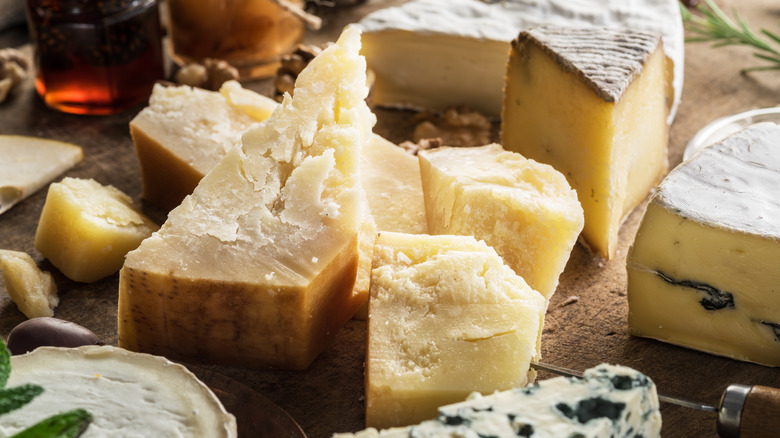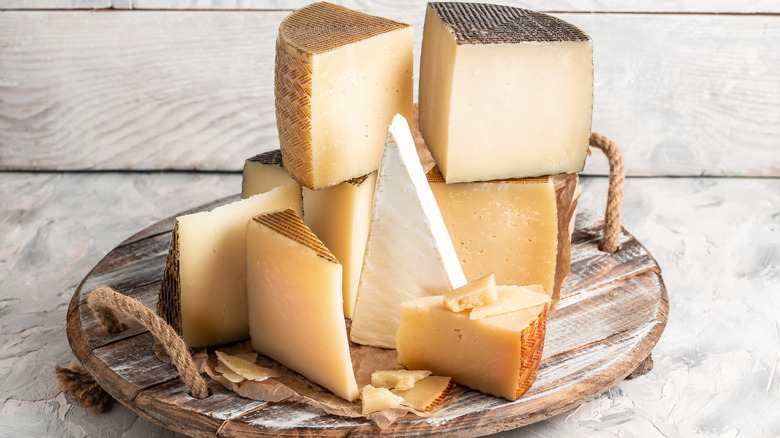These Are The Healthiest Kinds Of Cheese You Can Eat
Cheese tops the list of many people's favorite foods, but unfortunately it also tops the elimination lists on some diets. The good news? Experts say there are healthy options out there that allow you to enjoy the cheesy goodness.
Although cheese is known for being high in calories and fat, it can also be a source of protein, calcium, and vitamin D (via Shape). We've even compiled a list of cheeses that dietitians say are healthier options to choose from that have nutritional benefits.
Goat and sheep's milk cheeses are good options from caloric and nutritional perspectives. Goat cheese is high in protein and low in calories. Feta cheese packs only 75 calories per ounce and since being derived from goat's milk, no lactose issues for the sensitive groups. This Greek cheese is higher in sodium than other cheeses (via Medical News Today), but its low-calorie benefit makes up for it (in the U.S., however, sometimes you can find "feta" style cheese that is actually made from cow's milk, so definitely read the label).
Cheeses to choose and avoid
The Italian staple of ricotta cheese is offered in part-skim options for lower calorie and fat benefits, and is versatile for both savory and sweet dishes. Also prevalent in Italian dishes, parmesan cheese can be grated or shredded and used as a cheddar cheese replacement (via Shape). But if you're looking for a good sandwich cheese, provolone wins, especially on calcium levels.
There are also nutritional cheese options for spreads and even full side dishes. Cottage cheese is made from curdled cow's milk and is very low in calories and fat but high in protein. Neufchatel cheese is the French version of cream cheese but is lower in fat — perfect for spreads.
Although cheese can be healthy, there are some that should be avoided in large quantities if dieting for calorie, fat, or sodium reasons. Some cheeses to limit your intake of are brie, camembert, halloumi and mascarpone (via Medical News Today). But you should consult with your nutritional professional to research cheese contents and find the best fit for your diet plan.

